When new defensive coordinator Al Golden turned to veteran NFL defensive line coach Jerry Montgomery to lead the Bengals defensive line and coordinate the run game, he opted for a teacher respected around the sport for his ability to develop players in college and the pros.
In Bengals.com senior writer Geoff Hobson's conversation, Montgomery, 45, talks about how his foray into the AFC North trenches, his influences in his grassroots climb up the coaching ladder, and why it's OK that one of his sons plans to follow him in the profession while studying to be a coach at his father's alma mater of the University of Iowa.
THE CONVERSATION:
GH: What do you think of the AFC North?
JM: It's good. It's been good for a long time. Smashmouth football. Guys like to run it, and they've got capable run games and capable quarterbacks that can hurt you both throwing it and running it. It's a tough and nasty division.
GH: It's a defensive line coach's division.
JM: First and foremost, if you're D-Line and you don't take pride in stopping the run, shame on you. I played the position, and you can't get to those other things until you can do that. We'll affect the quarterback when it's time. But you've got to be able to stop the run and try to make somebody one-dimensional and then the fun starts.
GH: Is stopping the run similar in the AFC North to the NFC North? Or is the AFC North just different?
JM: There's a tradition with those teams in this league that run the ball. They've had great backs, good O-Lines. At the end of the day, you have to man up and try to make them one dimensional as possible. They're very good schemes and they're very well-coached and we have to match that.
GH: Describe your role as a run game coordinator.
JM: Ultimately, at the end of the day, we're all going to work together. But I'll be in charge of breaking down people's run game and how we want to attack it. Ultimately Al is going to make the final decision on anything we do. More importantly, it's just kind of my expertise. We'll present and work as a staff to figure out what's best on how to slow down run games and go from there.
GH: What's the key to stopping the run besides having great players?
JM: All 11 guys being on the same page. Stopping the run is like putting a puzzle together. If you've got certain guys not doing what they're supposed to be doing, there are creases in your wall, or creases in your puzzle, or missing pieces to your puzzle. If we can
put it all together and play as one and have 11 hats to the ball, we'll have a chance.
GH: What's your general view of your new players?
JM: Got something to work with. The way I look at is, coming in new, guys are in the league because they're talented. We've got guys who can play. I look forward to working with them and putting my spin on what it is that we do and getting those guys to play in the system the way we need them to be successful. Talent-wise, I think we've got some guys to work with. The system is a work in progress. We're working on it every day. It's what these guys do best.
GH: What do you like about your NFL sack leader Trey Hendrickson?
JM: Probably the obvious is he affects the quarterback. He's been pretty good at doing that, so it's nice to have a guy that can do that. Now what you have to try and do is build around that and put some other guys that can affect them at the rate he does. Maybe they want to chip him, double him and slide to him. Let's find somebody else opposite him and affect the quarterback.
GH: What do you think of the two rookie tackles, Kris Jenkins Jr. and McKinnley Jackson?
JM: I think there's upside there, and there's always a big jump from year one to year with young guys. I'm looking forward to getting with them in the spring and
getting my hands on them and getting them in the fall camp and watching them grow and develop.
GH: How did your nine seasons in Green Bay shape you before you went to New England last year?
JM: I think the biggest thing is, I went to Green Bay as a front assistant for the first three years. So I got to see how things operate. I think my biggest question mark leaving college to go to the NFL was I wanted to do it to see if I could do it.
And once I got there, I realized teaching is more important at this level than it is at the college level. And guys want to be coached, and guys don't want to be BSed. Guys don't want to be buddy-buddy. If you're full of crap, they know. So
If you were able to help them be productive and be a good football player, they're going to listen. And so when I got my opportunity, I was there for nine years. They value development in Green Bay, and that's what I did. They kind of give you who you get, and you develop the talent. They're a draft and development organization.
GH: They kept you through a couple of coaches.
JM: Two head coaches. Three coordinators.
GH: You started with Dom Capers as your coordinator, right? What was your takeaway from him?
JM: Probably one of the most organized, men I've ever been around. Organized.
GH: His notebooks are famous.
JM: You could ask him a date 18 years ago in time and he'd be able to pull open that book to that date and time and tell you exactly what he was doing. Detail. Organized.
GH: You obviously worked against some great offenses up there with Aaron Rodgers.
JM: One of the most talented arm throwers I've ever seen. Smart, sees things, hears things. Pretty fun.
GH: You were here with the Packers when they played the Bengals in a brutally great overtime game in October of 2021. Each team had about ten chances to win it.
JM: It was a fun environment to be in. Obviously. Joe's a great quarterback.
GH: What did you think of Bengals quarterback Joe Burrow getting ready for him and then playing him?
JM: You were so scared to let him take off and run, right? And then at the same time you wanted to put pressure on him, because you get him all day, he'll pick you apart. There was a mix of how you handle the rush and then affecting him. Super talented kid. Knows what he's looking at. Can make all the throws. Glad to be on his side.
GH: The Bengals seem to value you as a guy who develops players and you've talked about how playing at Iowa is a reason for that, along with coaching in Green Bay.
JM: That's how I was brought up. I was a teacher first. It didn't matter what happened on any play during the game. You can go back to fundamentals and say why it broke down, unless somebody totally had a bust and made a mental error. We were brought up when somebody did something right, pat him on the back. When somebody did something wrong, teach him how to do it better. We were brought up as a fundamentally -sound, defense. Teaching was the pedigree. That's where it started. Definitely.
GH: Do you emulate anybody as a teacher who taught you?
JM: I played for Ron Aiken, who was a great coach at Iowa. Coached for the Arizona Cardinals when they had that Super Bowl run. He was the one who got me started, molded me. You could say Coach Ferentz (Iowa head coach Kirk Ferentz) for that matter because that's kind of the background.
But Ron Aiken was the one who told me not to take the medical sales job and go coach at a junior college. 'This is who you are.'
GH: You learned from the grassroots. You were playing and coaching at the same time, right?
JM: I got cut from the Saints and also the Bills, and then I was coaching high school in the fall and playing arena in the winter. At the time it was the AFL on NBC. There was the Chicago Rush and Denver Crush. I just got to a point, this isn't really football. This is not what I grew up loving, right? That's when I said, 'All right, I've got to look at the real world.' I looked to get into medical sales, and then the call happened to go take the junior college job and I just never looked back.
GH: What makes a good teacher?
JM: Somebody who can take what the coordinator, offensively or defensively, wants to do and is able to get the players to go from point A to point B. That's
the most important thing is. If you want to run something defensively and you've got guys who can't get your players to run it, then there's obviously a disconnect. The most important thing to me is to be able to get these guys to play the way the coordinator needs us to play. And attention to detail with each
fundamental is part of that.
GH: Either of your parents teachers?
JM: No. To be honest with you, I think when they say you were born to do something, I was. Since I was young, I always wanted to be in athletics. And my gym teacher, Mr. Landry, he wore the old school three stripe Adidas top. I just wanted to be a coach. And then when I was a player, I was a sponge, I was coachable. And so I took what I was coached and I adapted it to what I was doing when I got the opportunity to coach high school and go back and be a student assistant there.
And it just was easy for me and that was my foundation. Now, obviously, you grow and you learn. You learn from mistakes. There's no better learning experience than coaching your own room, and going through adversity and going through problems and learning how to fix the problems. To me, what's allowed me to do get to where I'm at today.
GH: Did you want to be like Mr. Landry?
JM: He was the cool gym coach who built relationships with kids and then coached us up. And I liked that. 'I want to do that. I'll coach high school ball and be the phys ed teacher.'
GH: How old were you when you said that?
JM: Middle school. Probably like seventh grade.
GH: You've got a kid who is already here in high school after about two weeks, right?
JM: My son Jace is at Moeller. He's going through their offseason program right now. He started three games for Xaverian Brothers in Massachusetts, who won the state championship. And now he's here. A D-End. Wherever they need him. He's learning. The strength program is awesome. Excited about that.
He's our biggest one. I've got a red-shirt sophomore (linebacker) at the University of Iowa. Jayden. And I have Tevin, who is a student assistant there. He wants to coach. So he works in the office for Coach Ferentz.
GH: I guess you knew about Moeller from your days as a college recruiter.
JM: Great programs around here.
GH: How does Tevin's mother like having another coach in the family? Your wife Natalie played volleyball at Iowa.
JM: She's going to be happy for whatever he wants to do as long as he's happy. It's no different with me. I don't consider it work. Doing what I love.
See the best shots of the defense from the Bengals 2024 season
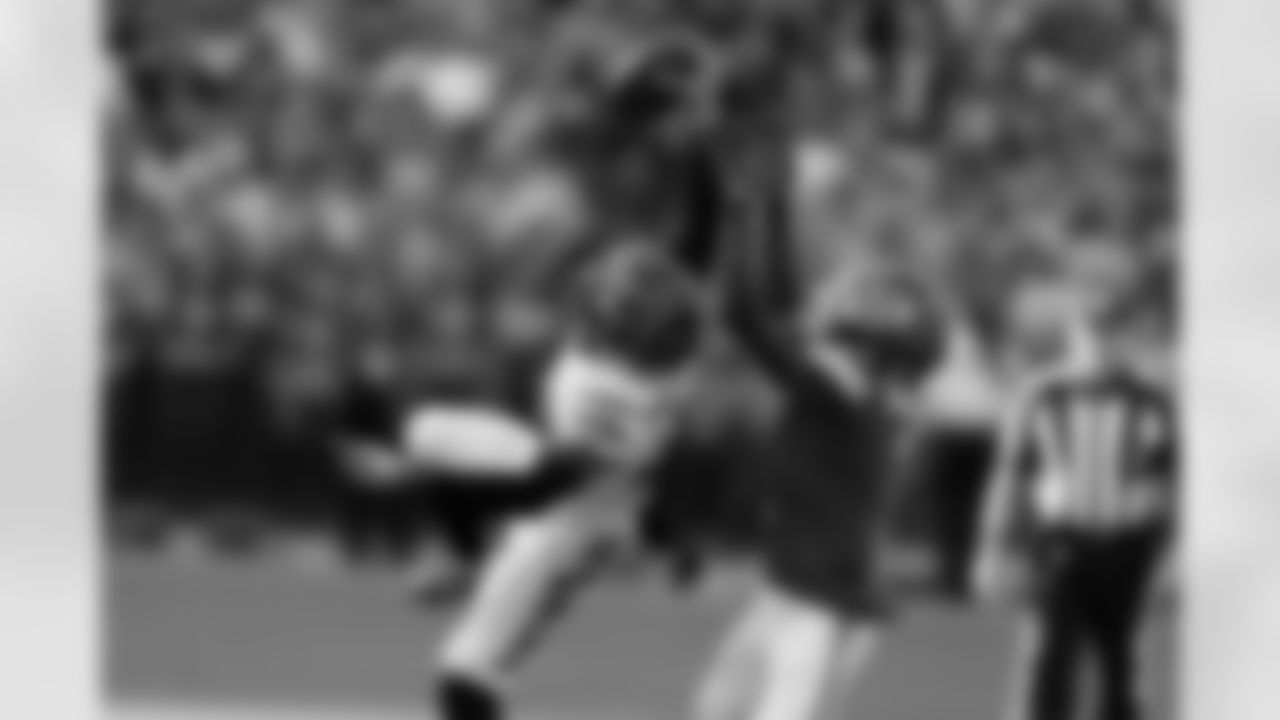
Cincinnati Bengals cornerback Cam Taylor-Britt, left, intercepts a pass intended for Kansas City Chiefs wide receiver Xavier Worthy during the second half of an NFL football game Sunday, Sept. 15, 2024, in Kansas City, Mo. (AP Photo/Charlie Riedel)
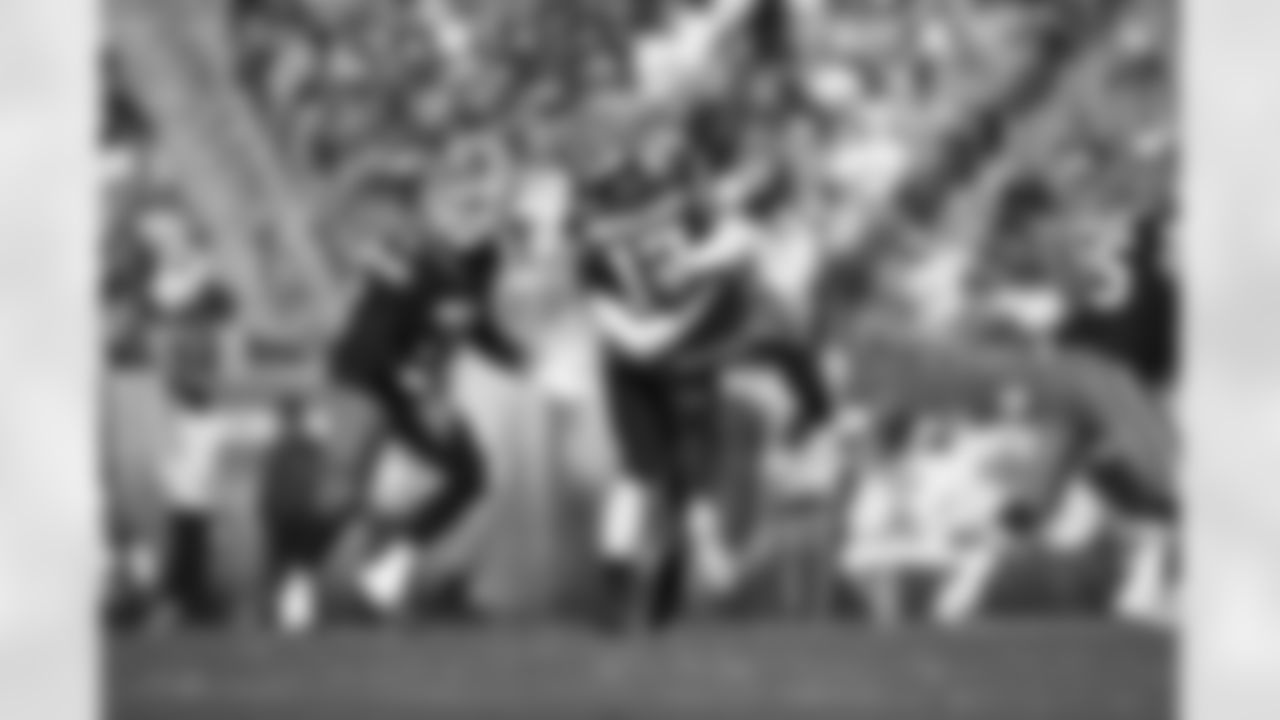
DE Trey Hendrickson hits QB Dorian Thompson-Robinson against the Cleveland Browns, Sunday, October 20, 2024.
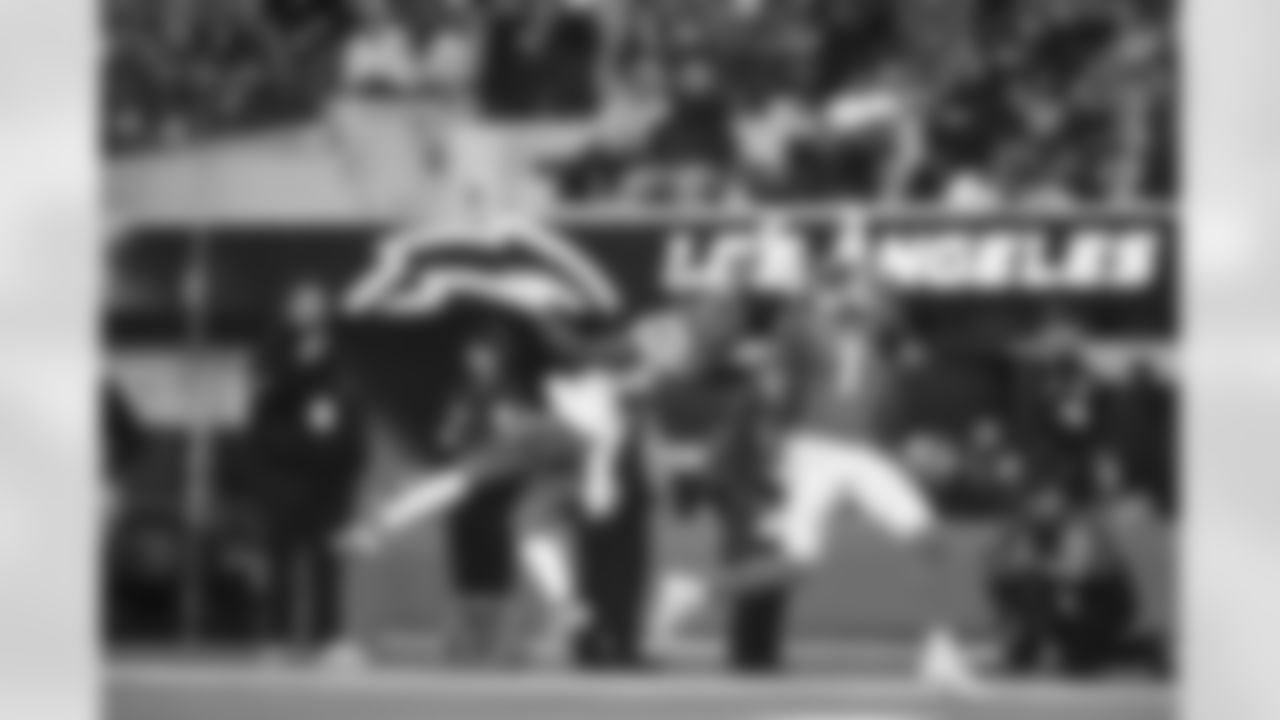
CB DJ Turner breaks up a pass during Week 11 against the Los Angeles Chargers at SoFi Stadium, Sunday, November 17, 2024
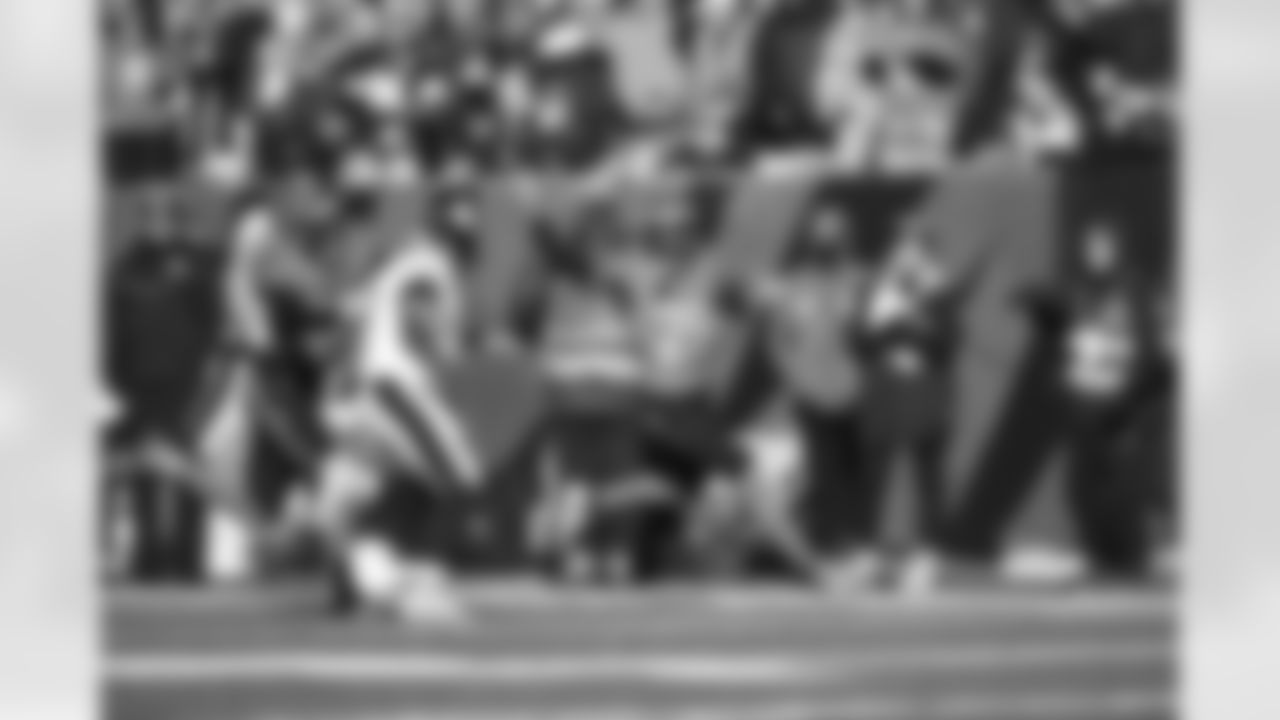
CB Cam Taylor-Britt returns his interception for a touchdown during the Bengals Week 13 game against the Pittsburgh Steelers at Paycor Stadium, Sunday, December 1, 2024.
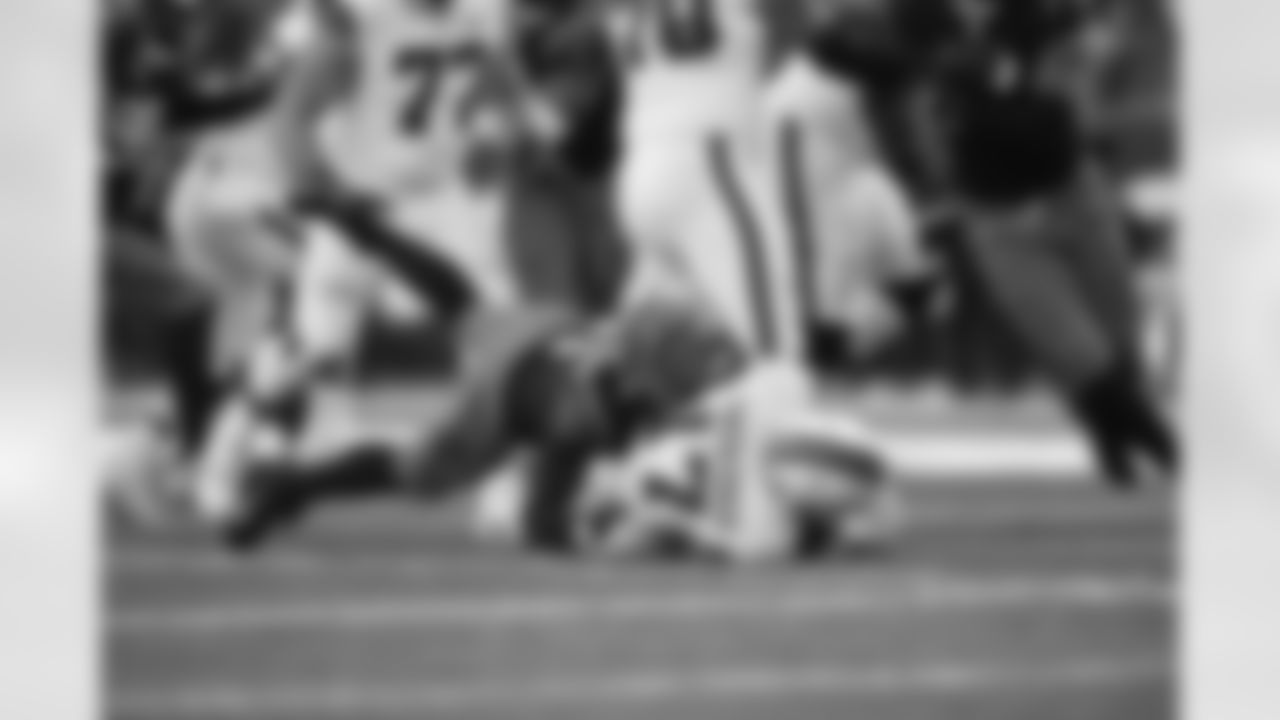
DE Trey Hendrickson takes down QB Dorian Thompson-Robinson against the Browns in Week 16, Sunday, December 22, 2024.

DT Kris Jenkins Jr. sacks QB Dorian Thompson-Robinson against the Browns in Week 16, Sunday, December 22, 2024.
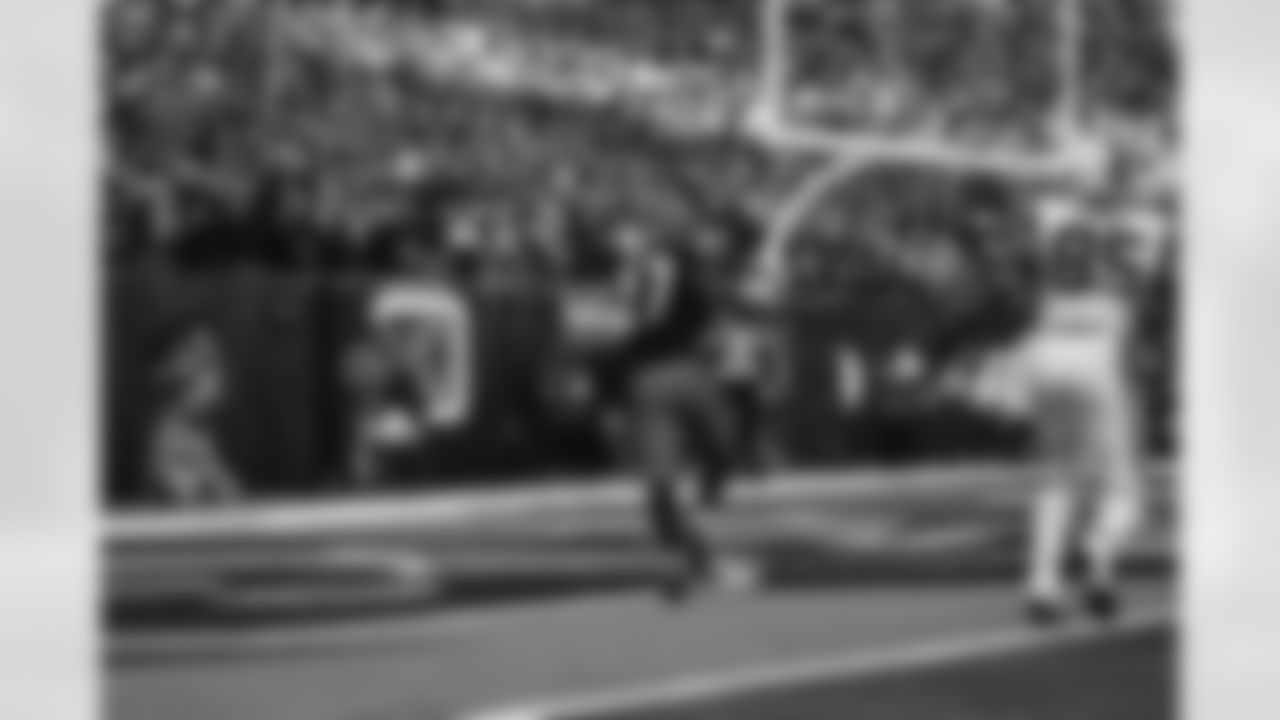
S Jordan Battle intercepts a pass in the endzone against the Browns in Week 16, Sunday, December 22, 2024.
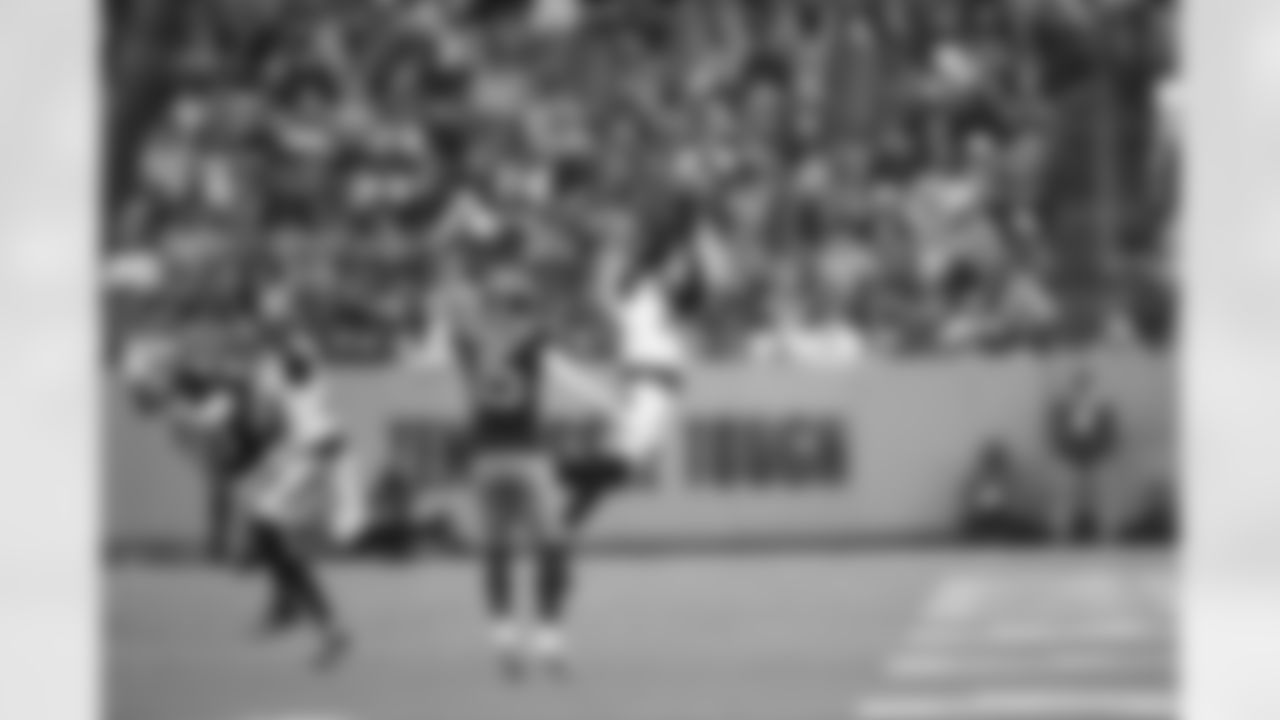
CB Cam Taylor-Britt intercepts a pass in the second quarter against the Titans in Nashville, Sunday, December 15, 2024.
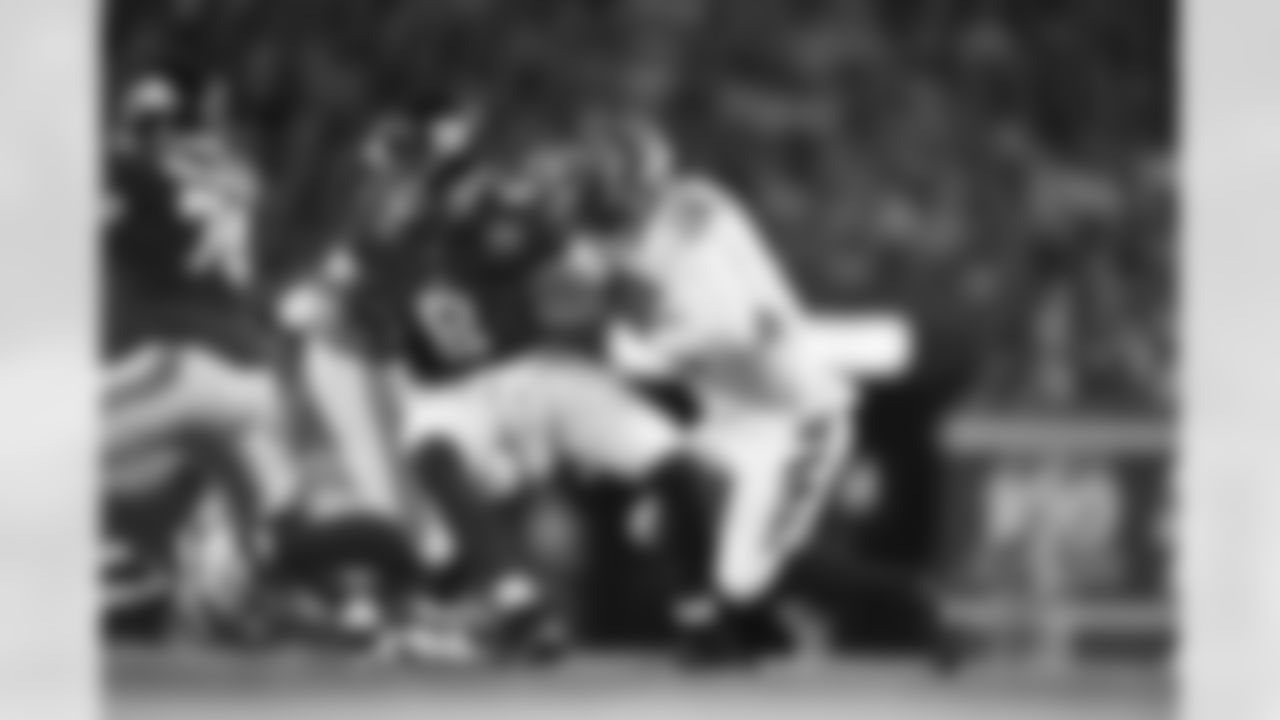
DE Trey Hendrickson sacks Daniel Jones during the Bengals Week 6 Sunday Night Football game against the New York Giants, Sunday,, October 13, 2024.
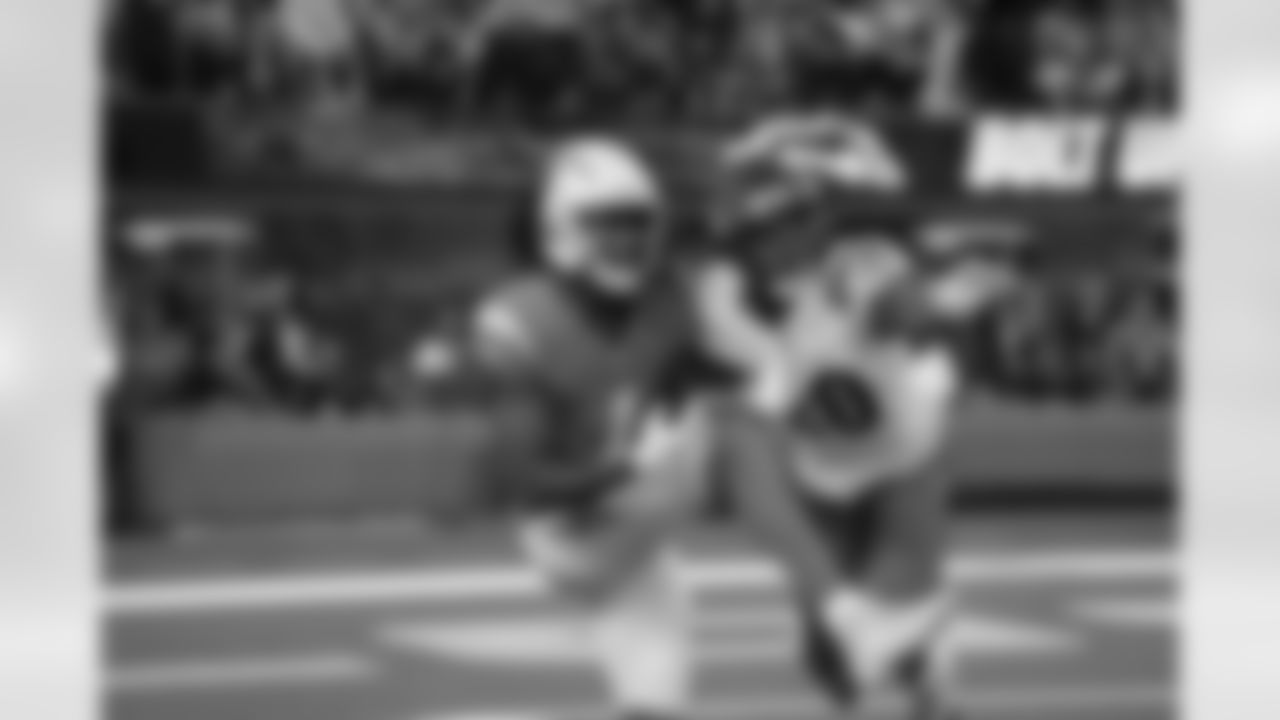
CB DJ Turner breaks up a pass during Week 11 against the Los Angeles Chargers at SoFi Stadium, Sunday, November 17, 2024
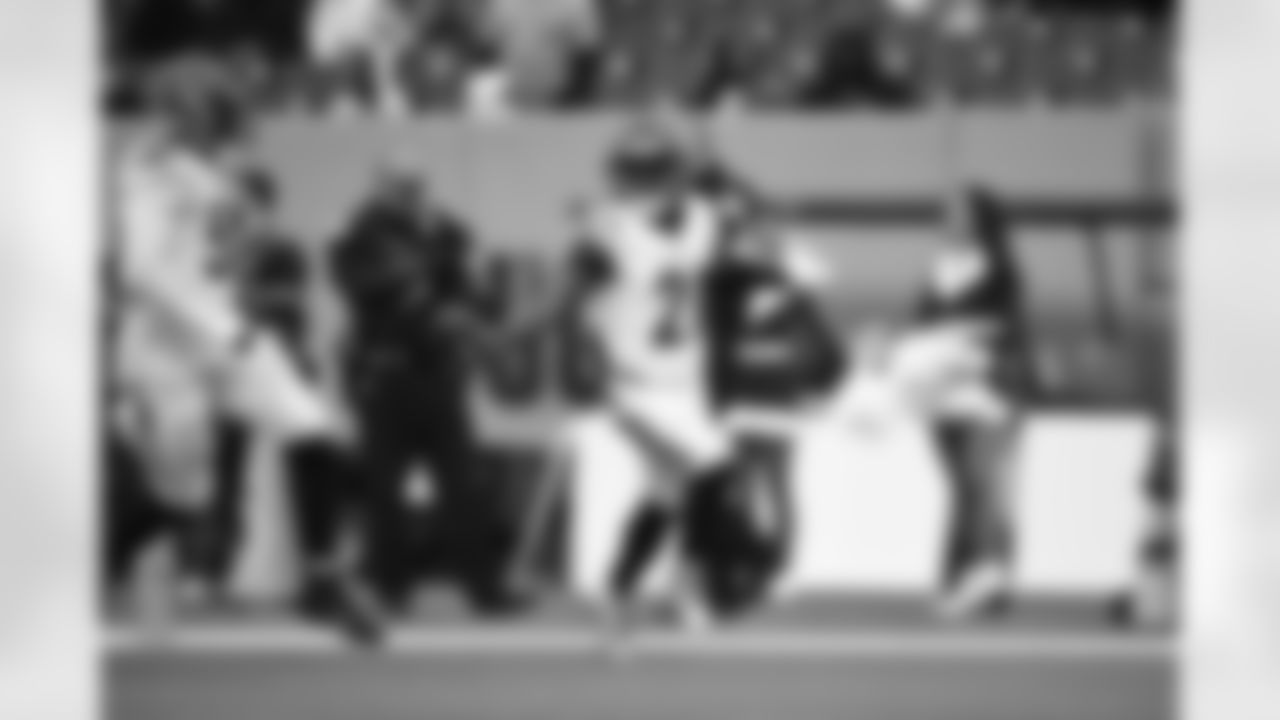
CB Mike Hilton celebrates his second-quarter interception against the Titans in Nashville, Sunday, December 15, 2024.
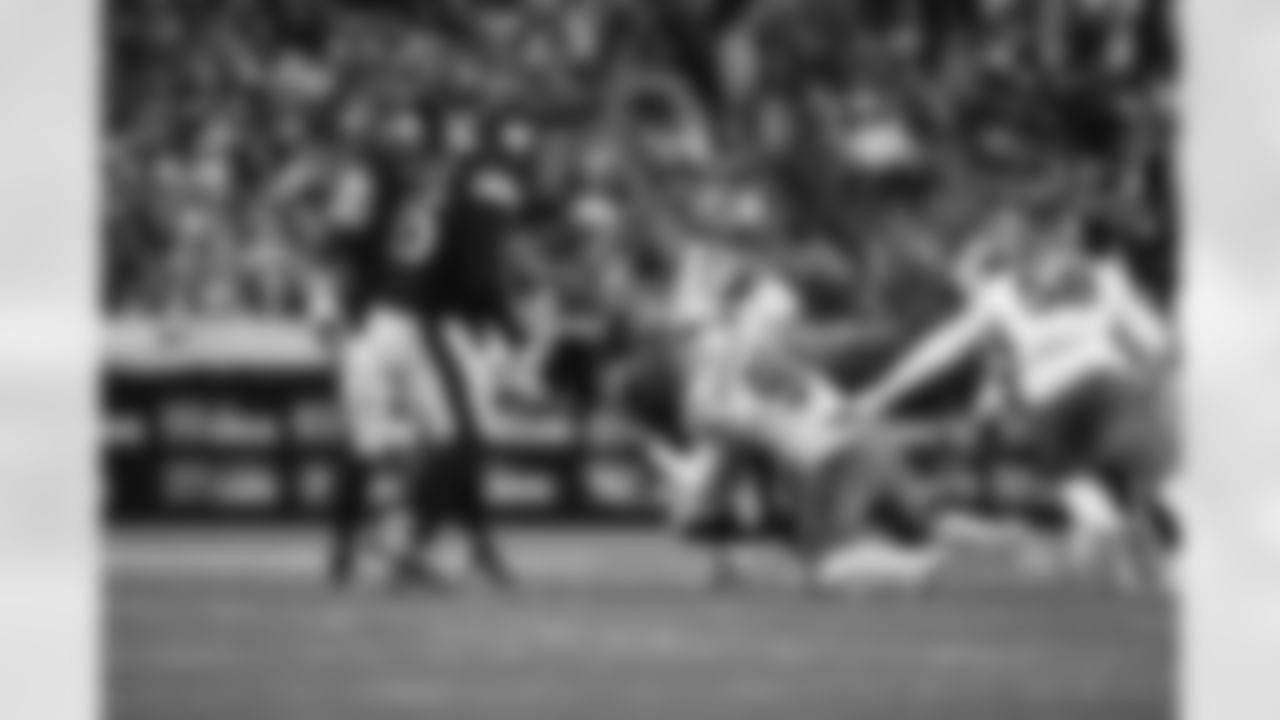
DE Trey Hendrickson sacks QB Russell Wilson against the Steelers in Pittsburgh in Week 18, January 4, 2025.
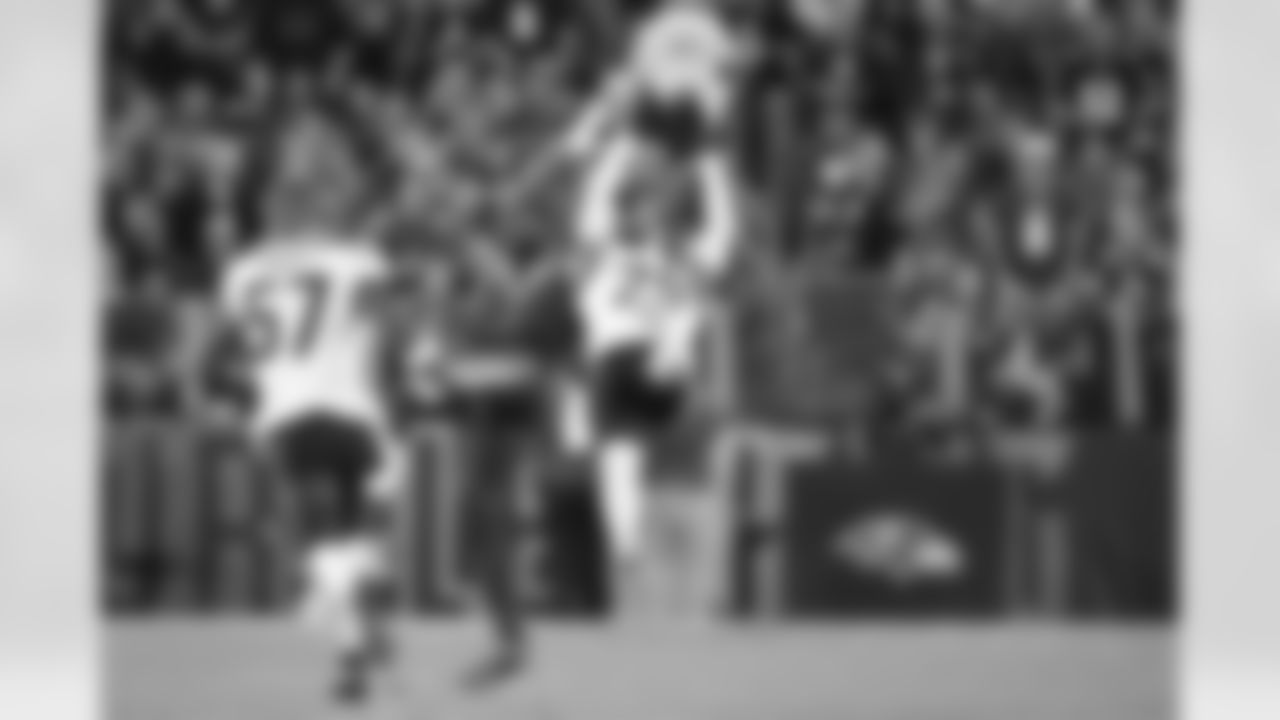
CB Cam Taylor-Britt breaks up a pass during the Bengals primetime Week 10 game against the Baltimore Ravens, Thursday, November 7, 2024.
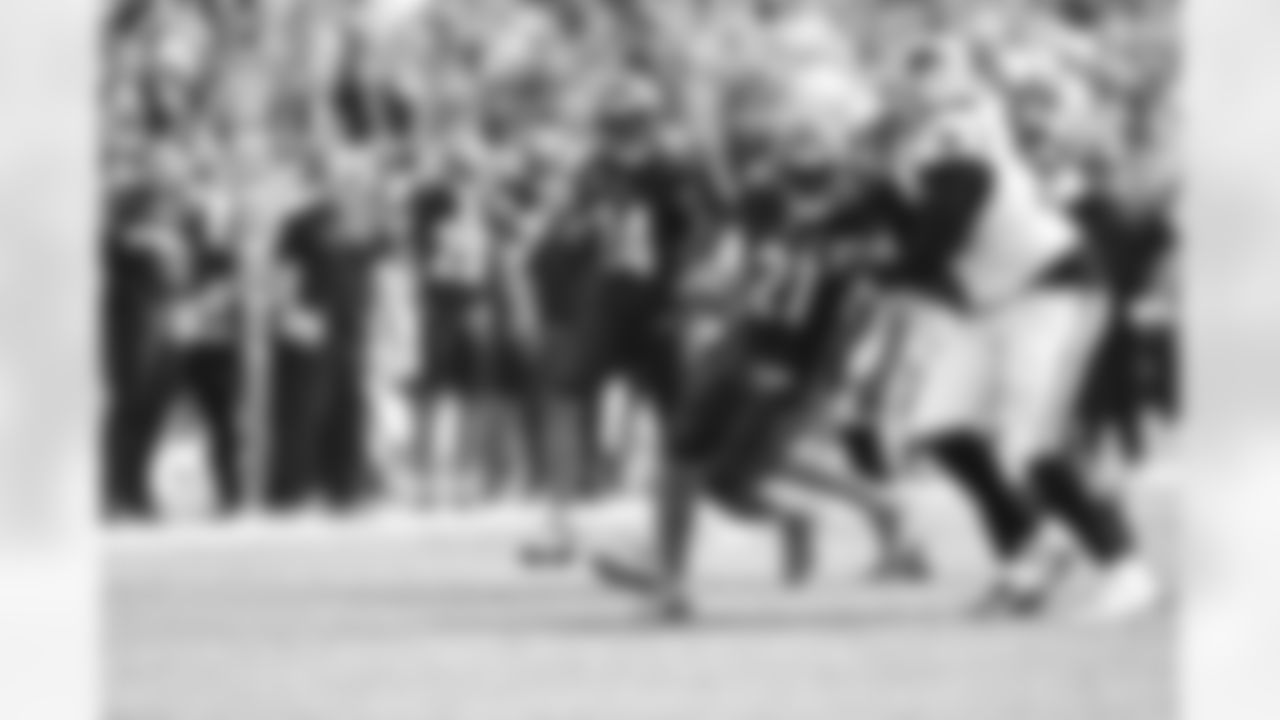
Bengals S Vonn Bell returns an interception during the Bengals Week 4 game against the Carolina Panthers at Bank of America Stadium, Sunday, September 29, 2024.
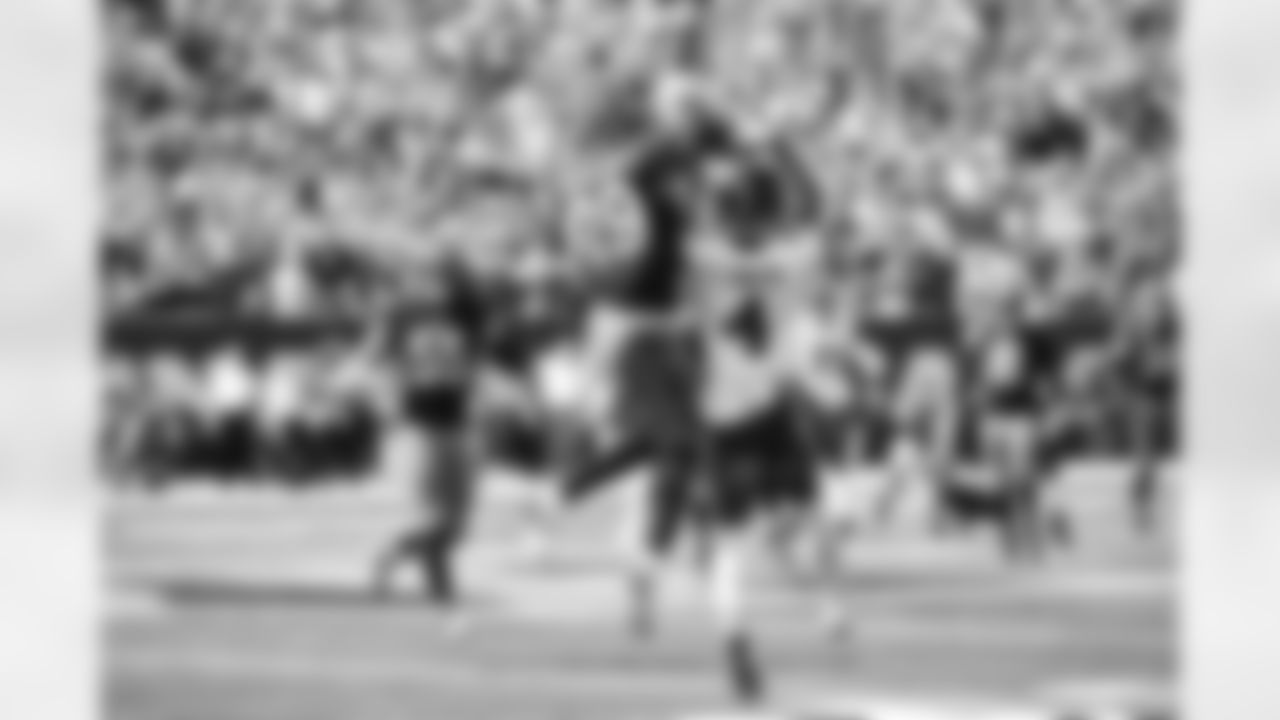
Bengals CB Cam Taylor-Britt breaks up a pass intended for WR Zay Flowers during Cincinnati's Week 5 game against the Baltimore Ravens at Paycor Stadium, Sunday, October 6, 2024.














